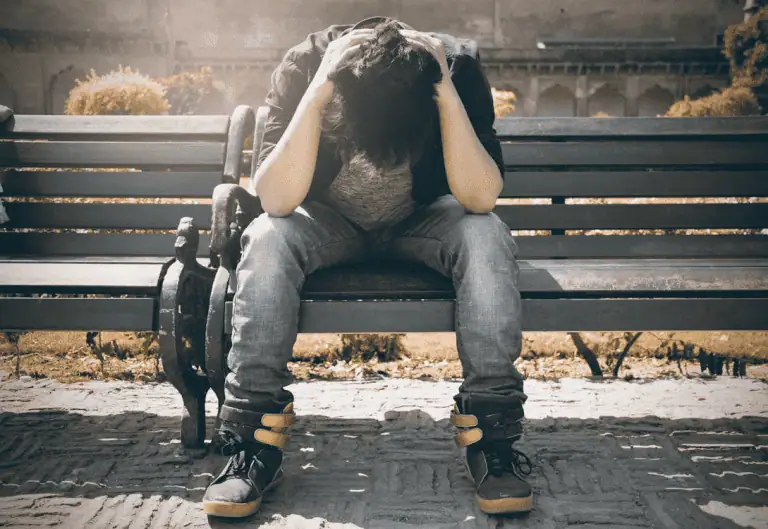The Psychological Effects an Accident Survivor Has to Go Through
This post contains affiliate links. Click here to read my affiliate policy.
Last Updated on December 24, 2024
Surviving an accident is a transforming experience that changes one’s physique and has a lasting impact on the mind. Regardless of the sort of event, survivors have a variety of psychological effects that might last for a long time after their physical injuries heal. These impacts vary from acute stress responses to chronic mental health disorders that limit a person’s ability to function correctly, maintain relationships, and go through their everyday lives. A personal injury lawyer can hold the at-fault party accountable and secure fair compensation for your losses. This blog helps you understand these psychological effects and the road to recovery.
Understanding the Immediate Psychological Impact
Victims of an accident may experience extreme stress reactions immediately. These sensations could include shock, disorientation, and insecurity. The stress reaction can cause an increase in alertness and is often followed by an adrenaline spike. This is a typical reaction, but for some, it can be severe and overwhelming.
In addition, many accident survivors report feeling like they are watching the incident from a distance, isolated from the outer world. This is known as emotional numbness, and it can be used as a coping strategy to assist the person in temporarily suppressing the intense feelings connected to the traumatic experience.
Post-Traumatic Stress Disorder (PTSD)
Some accident survivors experience psychological effects that extend beyond short-term stress and progress to post-traumatic stress disorder (PTSD), a more serious mental health disorder. When a person’s capacity to cope is exhausted by a traumatic event, PTSD can occur. Some of the symptoms of PTSD are:
- Nightmares
- Flashbacks
- Persistent feelings of fear
- Sadness
- Anger
A survivor of PTSD may experience long-term effects on their mental health, including difficulty readjusting to their usual routine or interacting with others. Due to the emotional cost, survivors may become detached, frustrated, or emotionally disconnected, which can disrupt relationships with friends and family. Substance abuse, despair, and an overall drop in quality of life can result from untreated PTSD.
Anxiety and Depression
Depression and anxiety are also common among accident survivors, in addition to PTSD. These may persist for a long period as a result of the trauma of the event and the healing process. Anxiety can be defined as chronic fear, sleep disturbances, panic attacks, or a continuous sense of unease. Many survivors are concerned about the likelihood of another accident or not being able to resume their prior lifestyle.
In contrast, depression may result from a survivor’s altered emotional or physical state. A feeling of despair or a diminished sense of self-worth can be triggered by chronic pain, disability, or losing one’s freedom. Surviving a radical change in routine may cause survivors to lose their identity or feel like burdens to others. Severe depression can result in suicidal thoughts or behavior.
Factors Influencing Psychological Effects
Pre-existing mental health issues and personal history affect how people cope with and recover from trauma. People who have experienced mental health problems in the past could have a more challenging time recovering.
Dealing with insurance companies, medical bills, and possible legal action can cause stress, which can result in mental health problems, including depression and anxiety. In places like Florida, where personal injury cases have a two-year statute of limitations from the date of the accident, victims frequently have to act quickly to obtain justice and compensation. The existing healing process may become even more stressful as a result of this legal pressure and financial strain.
Survivor’s guilt is another complex element influencing long-term psychological outcomes. This occurs when one person feels miserable about surviving an occurrence while others do not. Feelings of self-blame can worsen the regret because the survivor believes they could have done something differently to prevent the accident. This severe inner conflict triggered by the survivor’s guilt may result in significant mental health problems.
Coping and Recovery
- Therapy, support groups, and medication can all be used to assist survivors cope with their trauma.
- Family and friends can offer emotional support, compassion, and practical assistance.
- Cognitive Behavioral Therapy (CBT) is a highly successful treatment for PTSD, anxiety, and depression disorders. Survivors of CBT learn to identify and replace problematic thought patterns with healthier, more realistic perspectives.
- Self-help measures, including mindfulness, relaxation techniques, and a gradual introduction to driving, can also be effective.
Conclusion
Finally, the psychological journey of an accident survivor can be challenging and distinct. Even though accidents are devastating, understanding and addressing their psychological effects is an essential step in full recovery and in rebuilding the lives of those who survive them.






